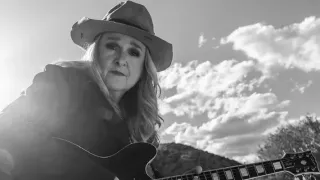Jan 10
Actor Grant Evan Explores Race, Class & Drag in 'Ain't No More'
Kilian Melloy READ TIME: 8 MIN.
EDGE: How would you describe "Ain't No Mo'?" Is it a satire? Is it a fantasia? How do you see it?
Grant Evan: Oh, my God, that's a great question. Satire is the best way to describe it – satire with high absurdist fantasy elements. I can't give away too much of the plot, so I won't talk about that. But using a sketch style, a lot like "The Colored Museum, I believe "Ain't No Mo'" tries to paint a picture of what it is to make choices in modern America.
EDGE: The show is very funny, but, like you say, it's also tackling serious themes. What is the most personal aspect of this play for you?
Grant Evan: One of the things that stuck with me, especially the first time I saw it, was how much intersection there is between the conversations around race as well as class, and how [playwright Jordan Cooper] zeroed in on the fact that you can't have these discussions about race in America without talking about class.
As someone who came from Prince George's County in Maryland, which is an affluent black community, it was interesting to try to separate out my raw feelings about Black capitalism versus my blackness. The other thing is that Peaches, our lead, is a queer woman. She's obviously as a drag queen or a trans femme. She is bold and present and leading, and unapologetically the voice that we enter the show through for so much of the show.
EDGE: Is drag a large part of your own resume as a performer?
Grant Evan: I don't consider what I do to be formally drag. I have a lot of friends who are proper drag queens who will tell you in a heartbeat that what [Peaches] is doing is not drag, and I think that's totally fair.
As a non-binary person, and someone who visually represents across the spectrum, it's been interesting deep diving into Peaches and the textures of drag as its own art form. One of the things that we've been privileged about in our current time is the commercialization of drag and taking it out of the subversive roots that it comes from – because of RuPaul, because of The Boulet Brothers – and truly getting to see drag become more mainstream, even as we get knocked back on some legislative things – to still see that people are more open and willing to invite that art form into their presence, and into their minds.






